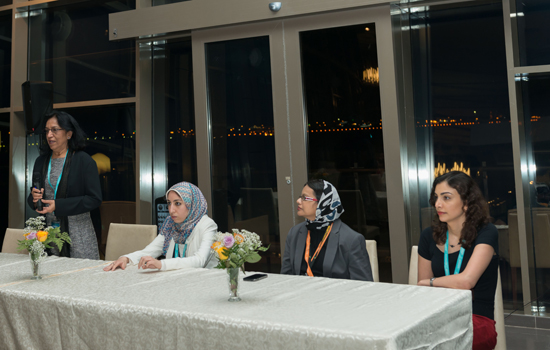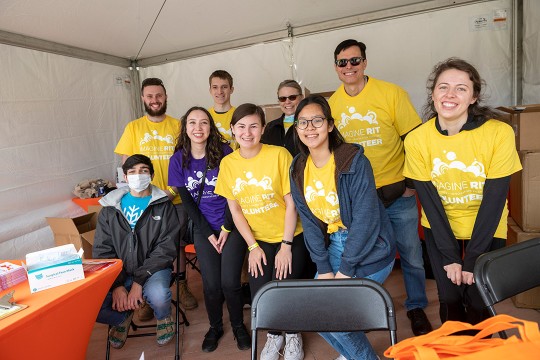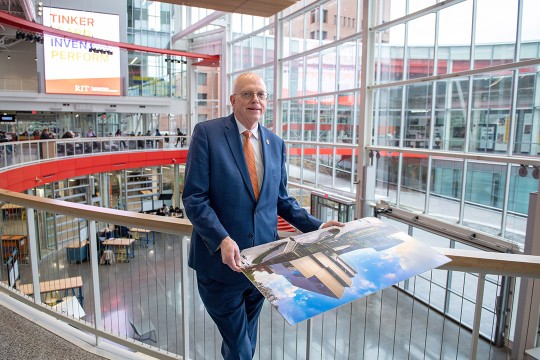Professor speaks at conference in Saudi Arabia
Connection to university may reap future faculty and student research and educational exchanges
Professor Santosh Kurinec was international chair of the NSF-King Abdullah University of Science and Technology conference on electronic materials. She also led a panel discussion about opportunities for women in STEM careers.
Santosh Kurinec, professor of electrical and microelectronic engineering at RIT, was the keynote speaker at the National Science Foundation-King Abdullah University of Science and Technology annual conference on Electronic Materials, Devices and Systems for a Sustainable Future. More than 200 scientists, researchers, university faculty and graduate students attended the conference that took place in Thuwal, Saudi Arabia, in late March.
Her talk focused on how universities and companies are driving new product development, incorporating sustainability efforts as well as advanced memory technologies for “big data” and the Internet of Things. She also was on a panel of female scientists to discuss careers in STEM fields, work-life balance and mentoring future professionals.
This was the first time Kurinec participated in the event and traveled in Saudi Arabia. She was international chair of the conference, an invited position, and sponsored several faculty through the National Science Foundation’s Bright Minds Award. The award is given to provide funding to six junior faculty members, researchers and graduating students for the conference and research symposium.
Saudi Arabia is a traditional, culturally-rich and modern country, Kurinec explained, but the conference participants, especially the female faculty-researchers from Saudi Arabia, had similar concerns as their U.S. peers about how to advance women in engineering and research professions.
“I came across highly dedicated women graduate students, passionate about their research,” said Kurinec, who will be working on student and faculty-researcher exchanges between KAUST and RIT. “KAUST is a world-class research and development university that attracts researchers from all over the world. I was very impressed by their semiconductor fabrication and materials characterization capabilities.”
At RIT, Kurinec and the faculty-researchers in the microelectronic engineering department, part of the university’s Kate Gleason College of Engineering, are focused on reducing the cost of solar cells by replacing silver, a substance used for contacts in solar cell metallization, with copper. The National Science Foundation’s Industry and University Cooperative Research Center, Silicon Solar Consortium, support these key projects; the latter is based at Georgia Tech and North Carolina State University. Kurinec and her research team are part of this center.















